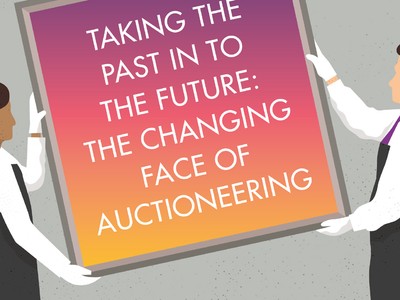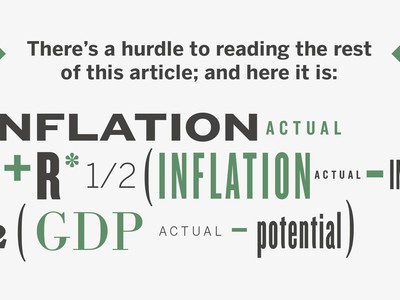In today’s technology-driven world the pace of change continues to accelerate, in many cases exponentially. It is rare that a week passes without one of the tech behemoths seemingly turning their attention to a new industry and potentially turning it on its head and threatening incumbents. Insurance has been and will continue to be affected by technological innovation but we believe the impact is more muted than in many other sectors and in the aggregate is a significant opportunity for our sector and companies.
Insurance fundamentally is nothing more than a promise to pay an amount of money when something bad happens. The sorts of thing that trigger claims payments are accidents, human negligence, bad weather, natural catastrophes and terrorist events. As great as the tech giants are there is little they can do to mitigate these triggers. Insurance will be relevant as long as risks remain in the world. We believe it will continue to be the oil that greases the wheels of world trade for many decades to come.
We have always strived to stay ahead of industry developments by being forward-thinking in our analysis, remaining curious and being respectful of, rather than beholden to, quarterly financial reporting. In 2015 we decided that given the accelerating pace of technological change we needed to spend more of our time looking further down the road and trying to see around corners. We therefore began to immerse ourselves in the emerging insurtech ecosystem, the insurance version of fintech. Today we mentor on three startup accelerator programmes, Startupbootcamp, Accenture’s Fintech Innovation Lab and the Lloyd’s Lab.
Inevitably parts of the insurance market will be vulnerable to innovation but it is likely this will be concentrated on personal lines, auto and home. The Fund has always been underweight personal insurance and tech innovation is just one more factor to add to the many reasons to be cautious in investing in this part of the market. Although the timing is debatable it is hard to see how autonomous cars will not significantly change the landscape for auto insurers with a consequent material drop in industry premiums. We have seen no drop in overall premiums historically as the declining frequency of car accidents (due to, for example, assisted braking and more stringent laws on drink driving) has been largely offset by the increased cost of an average claim (think of all those sensors, car mirrors and bumpers we have today). Autonomous cars will likely cause a significantly large enough decline in loss frequency to shrink the overall pie of personal auto insurance. More risk will also move to the commercial markets and away from the individual driver as more mobility solutions are introduced. In contrast,for commercial lines, where the Fund is focused, we view tech innovation as a significant opportunity. It is often forgotten that insurers are arguably the original data companies. AI and machine learning are additional tools that we believe will widen competitive moats as the best underwriters are already ahead of peers when it comes to data analytics. Technologies such as drones are already being used in claims assessments, for example assessing roof damage after hurricanes.
Insurance is an industry that is disconnected to many parts of financial markets and can therefore provide some valuable diversification to investor portfolios.
Over time the nature of insurance will evolve as more tech capability is incorporated into the product. Many insurance propositions today are already leveraging the power of sensors (the internet of things) to become preventative risk solutions. A common example is using water sensors in the home that automatically switch off the water in the event of a leak preventing a more costly flood. Sensors also mean that insurance pricing can become more usage based (e.g. pay more when driving your car than when it is parked in the garage). In many areas, especially health, insurance will become more personalised as data from wearables is used to nudge positive behaviours, like exercise, with customers being rewarded accordingly. In some sectors insurance will also likely become one component of broader risk solution. We have already seen this with cyber insurance where insurers are partnering with security firms to offer a more complete customer offering.
As we look back over the past 20 years much has changed but many things remain the same. What remains undiminished is our determination to deliver strong and consistent returns to shareholders. Insurance is an industry that is disconnected to many parts of financial markets and can therefore provide some valuable diversification to investor portfolios. It is an industry where the power of compounding is very evident, something not lost on Warren Buffett many decades ago when Berkshire Hathaway entered the insurance business. Few people get excited about insurance which leads to relatively steady valuations over time and therefore a strong correlation between stock performance and growth in book value and dividends per share. We believe our companies can continue to grow book values at attractive rates for many years to come and over any reasonable time horizon share prices will inevitably follow suit. Sometimes insurance looks dull and boring and short-term returns are unlikely to shoot the lights out but that is fine with us. We remain content on eating our own cooking and compounding returns slowly.
20 YEARS OLD
The insurance market was not in good shape in the 1990s which led to a seismic change to how the market was funded. In 1993 corporate capital was introduced, reducing firms reliance on Lloyd’s Names. Many of the larger agencies floated on the London Stock Exchange resulting in their withdrawal from managing capital on behalf of their Names.
Alec Foster, who became Group Investment Officer of Hiscox in 1976, then launched the Hiscox Insurance Portfolio Fund on 16th October 1998 to facilitate Lloyd’s Names investing in the global insurance market. The fund was moved out of Hiscox in 2008 to create HIM Capital and in 2010 that business was acquired by Polar Capital. Nick Martin took over as sole manager of the fund in 2016 having joined Alec in 2001.



